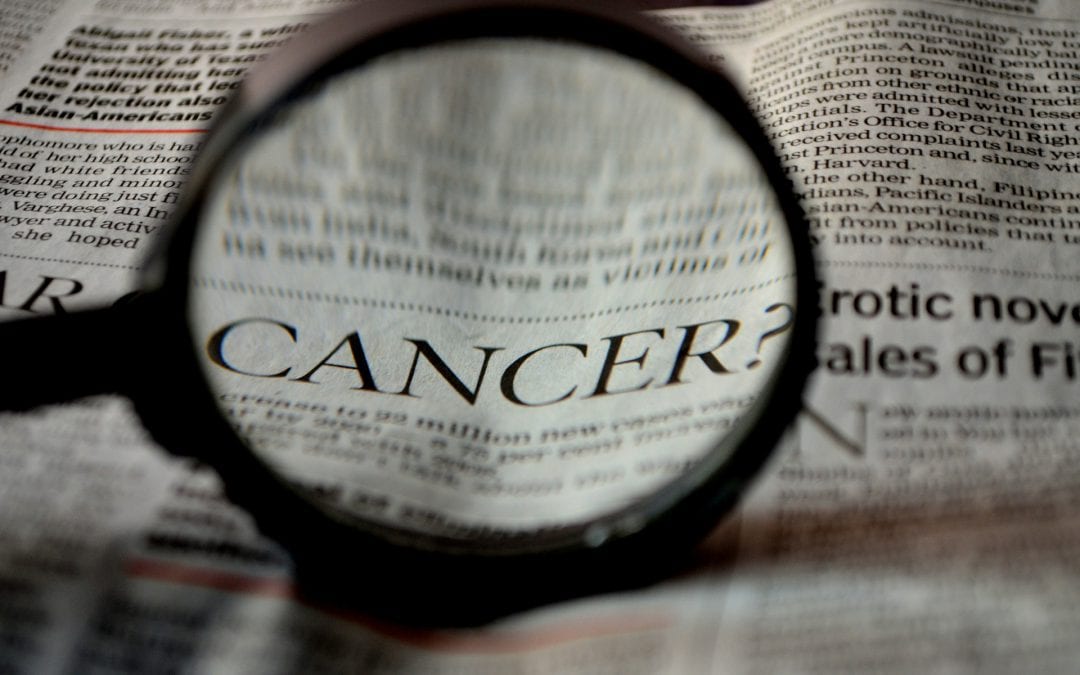Alcohol is classified as a carcinogen, which means it can cause cancer. An increased risk to develop cancer is mostly found with heavy alcohol consumption. It is less known what the effect of low alcohol consumption is. That is why a recently published review article1 looked at the evidence of existing meta-analyses on the matter. The authors conclude that there is no association between drinking less than one drink a day and cancer, except for an increased risk of breast cancer, prostate cancer and melanoma. However, experts are critical about the current study.
Updated: 16 October. See “Strong critique on the study”
What is already known? Heavy alcohol consumption is associated with an increased risk of several cancer types, including breast, colon, head and neck, liver and esophageal cancer. For low alcohol consumption the association is less clear, but there is strong evidence that the risk of breast cancer already increases with one drink a day.2
What is new? The review focuses on light alcohol consumption on a wide variety of cancer types and only looks at meta-analyses, no individual studies. In total, 29 meta-analyses are included.
The study explores the relation between light alcohol consumption and a wide variety of cancer types, including: Non-Hodgkin Lymphoma, melanoma, renal cell carcinoma, and esophageal, gastric, pancreatic, colon, brain, lung, laryngeal, oral and pharyngeal, breast, ovarian, prostate, bladder cancer.
Increased risk of breast, prostate and melanoma cancer
The risk to develop most of the cancer types increases with heavy alcohol consumption. However, the risk did not significantly increase with light alcohol consumption; defined as less than one drink a day (12,5 grams alcohol). But there are three exception: melanoma, and breast and prostate cancer.
The risk for women to develop breast cancer increases with around 10% when drinking one alcoholic consumption a day, compared to non-drinking. For men, the risk to develop prostate cancer increases with around 5% when consuming one or less drinks a day. Lastly, the risk to develop melanoma increased with around 7-10% with low alcohol consumption.
Possible protective effect
Apart from increased risks, the authors also found small decreased risks of several types of cancer associated with light alcohol consumption. This was the case for Non Hodgkin Lymphoma, and bladder, kidney and ovarian cancer. Interestingly, for Non Hodgkin Lymphoma this was only the case for beer compared to wine and spirits.
Strong critique on study
Members of the International Scientific Forum on Alcohol Research reviewed the current article and are very critical3. For example, in their search for meta-analyses, the authors focus on light drinking, but much of their paper deals with the effects of greater amounts of alcohol. Results are also inconsistent, and it is unclear to what extent confounders and drinking pattern influence the results. Forum member Andrew Waterhouse: “This error-ridden paper does not deserve much attention. Those who cite it without calling out the errors will reveal an uncritical approach to science.”
WCRF
The results are not in line with those of the World Cancer Research Fund (WCRF)4. The WCRF also finds an increased risk of breast cancer even for low alcohol consumption, but concludes that the evidence between alcohol consumption and melanoma (skin cancer) and prostate cancer are limited, or even too low to draw conclusions. As for a possible protective effect, they found probable evidence only for kidney cancer.
Strengths
- Only meta-analyses included
- Multiple types of cancer types included
Limitations
- Not clear whether former drinkers are excluded for the non-drinking controlgroups
- Not clear whether studies corrected for all confounders such as smoking
- Results are inconsistent
References
1 Caprio, G. G., Picascia, D., Dallio, M., Vitiello, P. P., Giunta, E. F., De Falco, V., … & Gravina, A. G. (2020). Light Alcohol Drinking and the Risk of Cancer Development: A Controversial Relationship. Reviews on Recent Clinical Trials, 15(3), 164-177.
2 Beer and Health. Beer and Cancer.
3 Alcohol Research Forum. Critique 242 – The relation of light alcohol consumption to the risk of common cancers.
4 WCRF. Alcoholic drinks and the risk of cancer.

